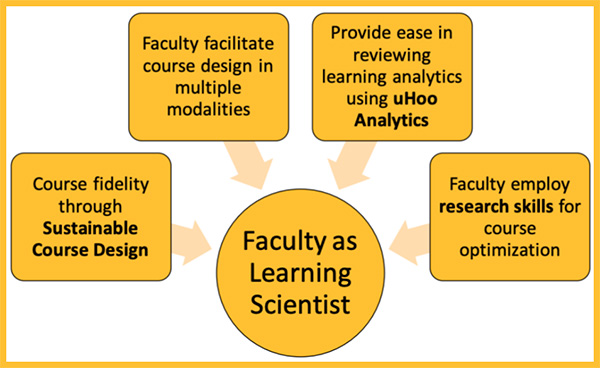|
Using uHoo Analytics to Become Learning Scientists
|
Faculty at KSU are empowered to become learning scientists through the use of uHoo
Analytics, a learning analytics platform integrated with the university's learning
management system (LMS). This tool provides faculty with real-time data and visualizations
about student engagement, performance, and areas of struggle within their courses.
By analyzing this data, faculty can:
- Identify students who may need additional support or tutoring based on their activity
levels and assessment scores.
- Pinpoint specific course content, activities, or assessments that are challenging
for students, as revealed by patterns in the data.
- Use these insights for making data-informed decisions about revising instructional
materials, adjusting teaching strategies, or providing targeted interventions during
the semester.
|
In essence, faculty as learning scientists apply their research skills and methodologies
to systematically study the learning process within their own courses. They can formulate
hypotheses, collect and analyze data, and iteratively refine their teaching practices
based on empirical evidence. This approach aligns with the principles of learning
science, where instructors continuously investigate how students learn and use that
knowledge to design more effective learning environments.
By embracing the role of learning scientists, faculty can move beyond traditional
teaching methods and become more responsive to the unique needs and challenges of
their students. The data-driven insights from uHoo Analytics empower faculty to make
evidence-based decisions, personalize learning experiences, and ultimately improve
student success.
|




















